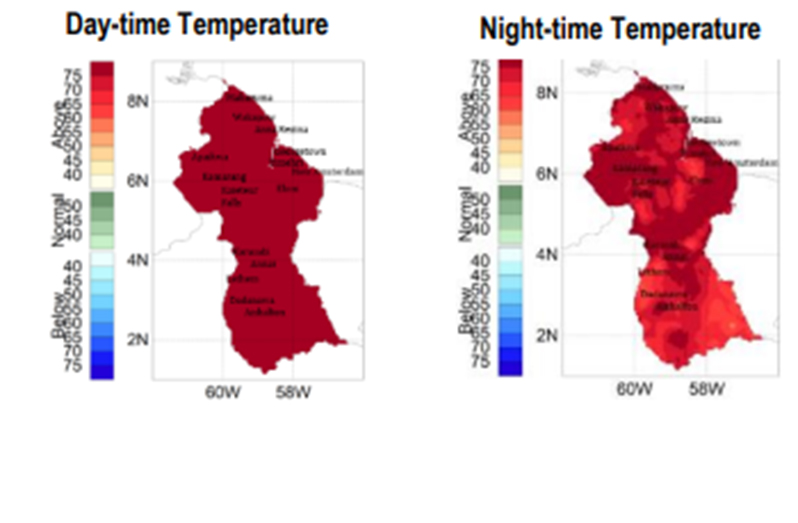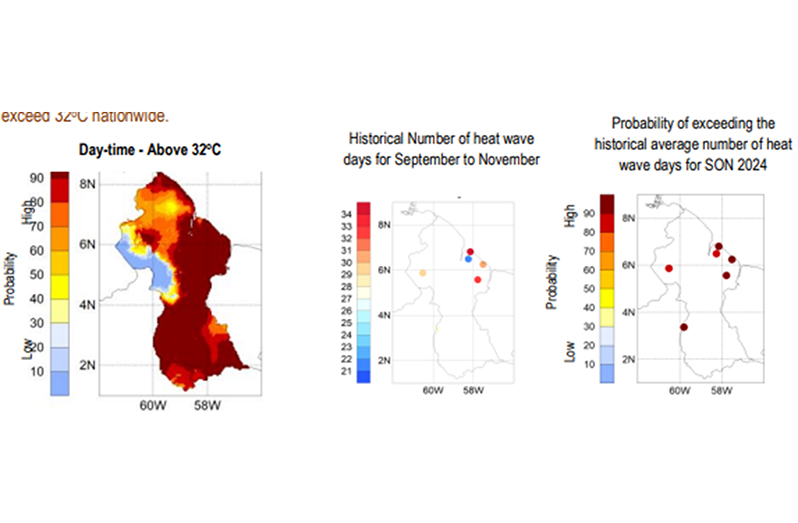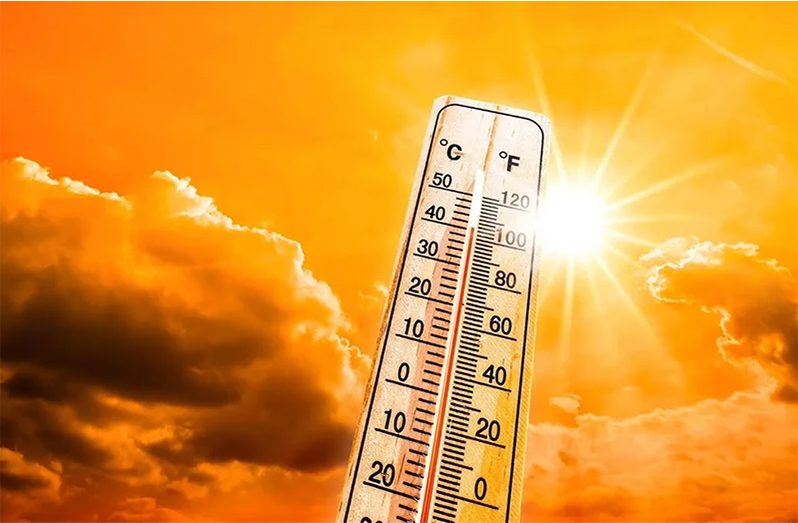A FEW months ago, Guyana’s Hydrometeorological Service (Hydromet) issued an advisory, warning the populace to brace for above-normal/warmer temperatures in September, October, and November.
Guyanese were urged to take preventative measures to avoid extreme impacts to health and even agriculture but, the impact of higher-than-average temperatures, are being felt far beyond physical health.
“If your physical health is being compromised by the climate, then your mental health will be affected too,” Dr. Shane Tull, a Clinical Psychotherapist, shared in a recent interview with the Guyana Chronicle.
Dr. Tull pointed out that mental well-being is increasingly at risk, with rising temperatures linked to heightened stress, anxiety, and even depression.
While many still doubt the reality of climate change, Dr. Tull emphasises that the rising temperatures and shifting weather patterns are already having observable impacts on people’s emotional well-being.
“A lot of people still don’t think it’s (climate change) real. Many people of influence still believe it’s a hoax,” Dr. Tull remarked.
According to Hydromet, from January to July 2024, average daytime temperatures across Guyana consistently exceeded the 32 °C historical norms, with some months recording higher temperatures for the same period in 2023, which was a record-breaking year.
Usually, up to 35 heat wave days are observed during the September to November dry season.
However, there is a significant chance of exceedance, posing risks to public health, agriculture, and livestock.
According to the National Oceanic and Atmospheric Administration (NOAA) National Centres for Environmental Information’s 2023 Global Climate Report, every month in 2023 was among the top seven warmest on record, with the months in the second half of the year June to December being the hottest on record.

The report had stated that global temperatures were more than 1.0°C (1.8°F) above the long-term average in July, August, and September, marking the first time any month has exceeded that barrier in NOAA’s records.
Already the World Meteorological Organisation (WMO) has forecasted 2024 to be the warmest year exceeding temperatures from the previous year.
In a report launched at the UN Climate Change Conference, COP29, in Baku, Azerbaijan, WMO said that 2015-2024 will be the warmest ten years on record citing the loss of ice from glaciers, sea-level rise and ocean heats accelerating.
Providing an analysis, WMO noted that from January to September 2024 global surface air temperatures were 1.54 °C (with a margin of uncertainty of ±0.13°C) above the pre-industrial average.
Closer to Guyana’s shores, Hydromet has forecasted that for the months of September to November could see temperatures exceeding 32°C with a strong indication that the average day-time temperature across the season would exceed 32°C nationwide.
Meanwhile, the average night-time temperature recorded across Guyana was 22.3°C while the average day-time temperature was 31.5°C in the previous months.
HOW ARE THESE TEMPERATURES AFFECTING GUYANESE?
Dr. Tull explained that heat can serve as a trigger for those predisposed to mental health conditions, such as anxiety or panic attacks. “When it’s hot, people tend to become more irritable,” he noted.
The impact of climate change on mental health goes beyond individual reactions. Dr. Tull observed that the changing weather patterns are influencing the way people interact with one another. “…We’re seeing more road rage and frustration in public spaces.”

Sharing more insight, Nayan Persaud, a Principal Environmental Health Officer attached to the Environmental Health Unit of Guyana’s Health Ministry, highlighted that persons who are predisposed to mental health conditions are among the most vulnerable during these warmer periods.
Persaud during a candid interview highlighted that persons who are also on medication are more likely to be affected than the average person.
“There are certain medications, let’s say psychotropic medications like antidepressants, mood stabilisers for example they affect our body to help alleviate the stress that we are facing so persons who are going through depression.”
“That medication also affects how our bodies regulate temperature, so a person who is taking those medications could feel the heat worse than somebody who is not on that medication and their body can’t regulate that heat,” the climate and health specialist added.
He explained that some antidepression medication impairs the body in producing sweat; this puts the body at risk of suffering from heat related side effects, such as heat strokes, further exacerbating mental health conditions.
MORE AWARENESS, MORE COLLOBORATION
It is evident that conditions are only going to get warmer, as such factoring in climate change into discussions of mental health is going to be paramount going forward.
And although there is some level of interagency collaboration on the two subjects, there is a greater urgency for more working relationships, not only in pushing awareness but ensuring every section of the Guyanese population is climate literate.
“We need to have that relationship with different persons, at the Met (Hydromet) office, the Ministry of Health, the Ministry of Agriculture, the EPA (Environmental Protection Agency), private sector companies and other public service agencies,” Persaud urged.
(“This story was published with the support of the Caribbean Climate Justice Journalism Fellowship, which is a joint venture of Climate Tracker and Open Society Foundations)



.jpg)











